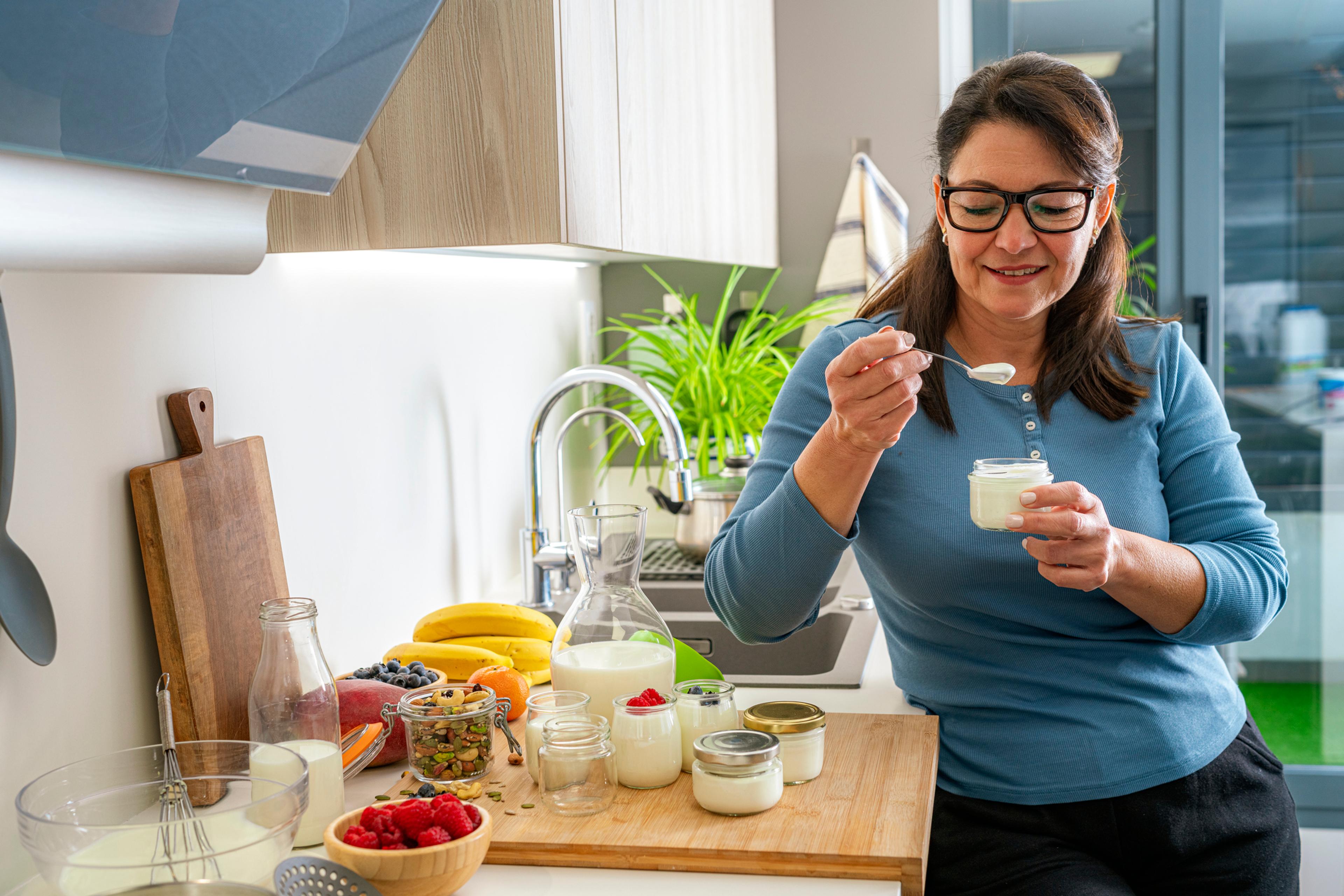Probiotics for Women: Should You Be Taking Them?

Lindsay Knake
| 3 min read

Global sales of probiotics are in the tens of millions and could reach more than $17 million by 2027, according to Harvard Health.
You may add more probiotic foods to your diet or reach for a supplement to help with physical and mental health, but do they work? Here’s a look at probiotics, how they affect health conditions women face and whether you should consider taking them.
How do probiotics improve health?
Probiotics are live beneficial bacteria and yeasts that naturally live in your body. These good bacteria perform vital functions for your health, including:
- Digestion
- Supporting cells in your gut lining
- Controlling bad bacteria in your body
- Breaking down food to create essential nutrients
- Supporting a healthy gut microbiome
A healthy gut microbiome is connected to overall physical and mental health, such as a healthy immune system, reduced inflammation and lower anxiety. Stress, diet and certain medications can disrupt the gut microbiome and contribute to illness, inflammation and worsened mental health.
Probiotics for gut health
A gut microbiome in which the bad microbes outnumber the good ones can create or exacerbate gastrointestinal conditions and difficulties such as:
- Inflammatory bowel diseases such as ulcerative colitis and Crohn’s disease
- Small intestinal bacterial overgrowth (SIBO)
- Digestive problems such as constipation, gas and irritable bowel syndrome (IBS)
Women are about two times more likely than man to have GI conditions such as IBS and IBD, according to the American College of Gastroenterology.
Probiotics may improve symptoms of IBS, colitis and Crohn’s, according to Harvard Health. Research on probiotics for GI conditions is difficult because of the large number of probiotic strains and varying individual outcomes, but some people report finding relief after ingesting probiotics.
The gut-brain connection
The gut microbiome is connected to the brain by producing some chemical neurotransmitters that carry messages between your gut and brain. When your body is low on certain good bacteria, this can negatively affect your mood and increase anxiety.
An unhealthy microbiome is also connected to inflammation, which can increase the risk of depression.
Women have higher levels of anxiety and depression than men, according to the Anxiety and Depression Association of America. Serotonin, 90% of which is produced in the gut, plays a role in mental health, and women may produce serotonin more slowly.
More research is needed on the relationship between probiotics and mental health, and probiotics may affect individuals differently, according to the Cleveland Clinic.
Where to get probiotics
A healthy diet with probiotics in addition to stress management and a healthy lifestyle can support gut health and overall physical and mental health. Whole foods are the best sources of nutrients and probiotics. Foods that are generally good sources of probiotics include:
- Fermented vegetables and fruits
- Miso
- Tempeh
- Sauerkraut
- Kimchi
- Yogurt and kefir
- Kombucha
Look for live and active cultures on food labels, and avoid heating foods because the heat can kill the healthy bacteria.
You could also take probiotic supplements. However, they are not regulated by the U.S. Food and Drug Administration and may not contain the contents on the label. If you need to take a probiotic supplement, look for products approved by the United States Pharmacopeia (USP) or National Science Foundation (NSF). This means they are tested and certified by an independent third party.
Generally, probiotics are low risk, but untested probiotic supplements could cause infections in people with weakened immune systems, according to the Cleveland Clinic. Talk to your primary care provider before taking any new supplements.
Image: Getty Images
Related:





